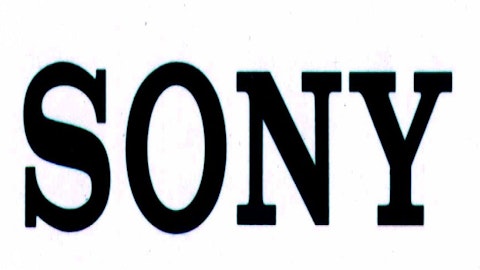Microsoft Corporation (NASDAQ:MSFT) revealed its next console on Tuesday, the Xbox One. With it, the company effectively killed the market for used games, and presumably, GameStop Corp. (NYSE:GME)’s business.
The Xbox One

The Xbox One is a step forward in gaming. The new console runs x86 PC architecture, boasts impressive technological capabilities, and offers users a whole new TV viewing experience.
But it doesn’t allow for used games in the traditional sense. All Xbox One games will have to be installed onto the system and activated online. Unlike previous video game consoles, which played games directly from the disc, the Xbox One functions like a PC — playing the game from an installation file on the hard drive.
Gamers won’t be able to loan their games to their friends, though they can still install the game on another console and play it — as long as they are signed onto their Xbox Live account.
Microsoft Corporation (NASDAQ:MSFT) has promised that there will still be some sort of market for used games, according to a report from Kotaku. But that marketplace will be online in nature. Presumably, it would allow users to sell or trade the rights to play a game — stripping it from their account and giving it to the buyer.
Altogether, it’s not a particularly good development for GameStop shareholders.
GameStop’s reliance on the used games market
GameStop remains completely dependent on the market for used video games. The abolition of this market would almost certainly lead to the death of GameStop, assuming the company is not able to radically reform its business model.
The company’s recent 10K reveals the extent to which it is dependent on the market for used games — 48% of Gamestop’s profits come from the sale of pre-owned video game products.
This category includes things other than games (pre-owned consoles and accessories) but games comprise the vast majority.
GameStop has been working at branching into other areas — bolstering its online store, getting into the market for used tablets — but replacing the profit it generates from used games would be no small feat.
Sony Corporation (ADR) (NYSE:SNE) and Nintendo
Sony’s PlayStation 4 does not appear to have this online activation issue. According to CNet, the PlayStation 4 will give gamers the ability to swap physical discs freely. Meanwhile, Nintendo’s latest console, the Wii U, is already here, and carries no such restrictions.
Unfortunately for GameStop, there’s more to it than that. The Wii U has sold terribly in the six months that it has been on sale, and though the console might bounce back, if current trends continue, there won’t be many used Wii U games for GameStop to resell.
Cloud gaming is the future
But forget about the notion of selling used game discs — GameStop’s threatened by a much bigger trend.
Earlier this month, Adobe Systems Incorporated (NASDAQ:ADBE) announced that it would be radically reforming the way it offers its Creative software. Instead of selling Creative Suite for a one-time fee, Adobe would only offer its products through the cloud — users would be forced to pay a monthly fee of $50 to use the software.
This model seems destined to make its way to video game consoles. Alongside the unveiling of the Xbox One, Microsoft Corporation (NASDAQ:MSFT) announced that it would be significantly bolstering the number of cloud servers it has dedicated to gaming.
Microsoft’s cloud solution, Azure, allows developers to create software that remains in the cloud, stored on Microsoft’s servers. Now, the company is bringing this to gaming, allowing developers to store their games on Microsoft Corporation (NASDAQ:MSFT)’s own servers.
Right now, these cloud solutions are optional — developers will be able to utilize them to varying degrees. But it isn’t hard to imagine that one day, games will be played entirely in the cloud.
For its part, Sony is going in the same direction. The Japanese electronics giant acquired Gaikai — a video game streaming company — in 2012 for nearly $400 million. Some of Gaikai’s technology is built into the PlayStation 4.
For example, although the PlayStation 4 is not directly backwards compatible, gamers can stream PlayStation 3 games over the Internet to their PlayStation 4 systems. At the same time, Sony will offer all PlayStation 4 games as digital downloads, and it hopes, will one day be able to offer streaming game subscriptions similar to Netflix, Inc. (NASDAQ:NFLX).
In short, the notion of a game as a physical disc is rapidly coming to an end. Although it won’t happen overnight, video games are increasingly existing only in digital form — either downloaded to a console or played on a distant server.
Why would anyone hold GameStop shares?
The long-term case for GameStop seems tremendously dire. The used games market won’t vanish overnight, but it’s hard to imagine, given the current trends in technology, that a healthy used games market will still exist four, five, six years from now.
If GameStop can’t adapt, it likely won’t survive.
The article Microsoft Just Killed the Market for Used Video Games originally appeared on Fool.com and is written by Salvatore “Sam” Mattera.
Salvatore “Sam” is a member of The Motley Fool Blog Network — entries represent the personal opinion of the blogger and are not formally edited.
Copyright © 1995 – 2013 The Motley Fool, LLC. All rights reserved. The Motley Fool has a disclosure policy.


